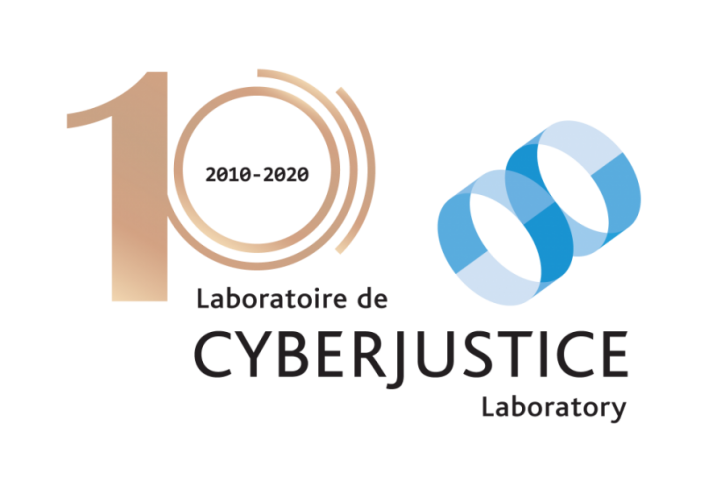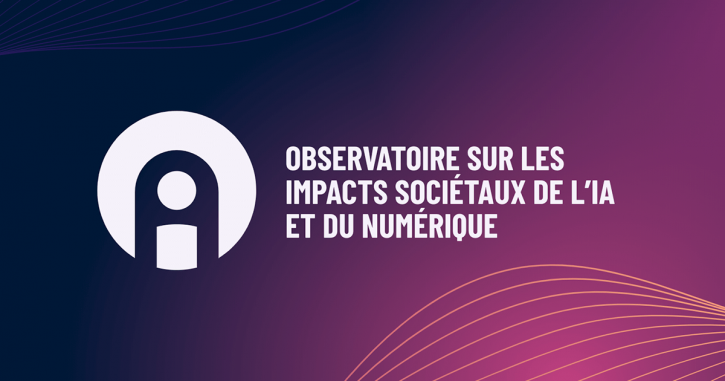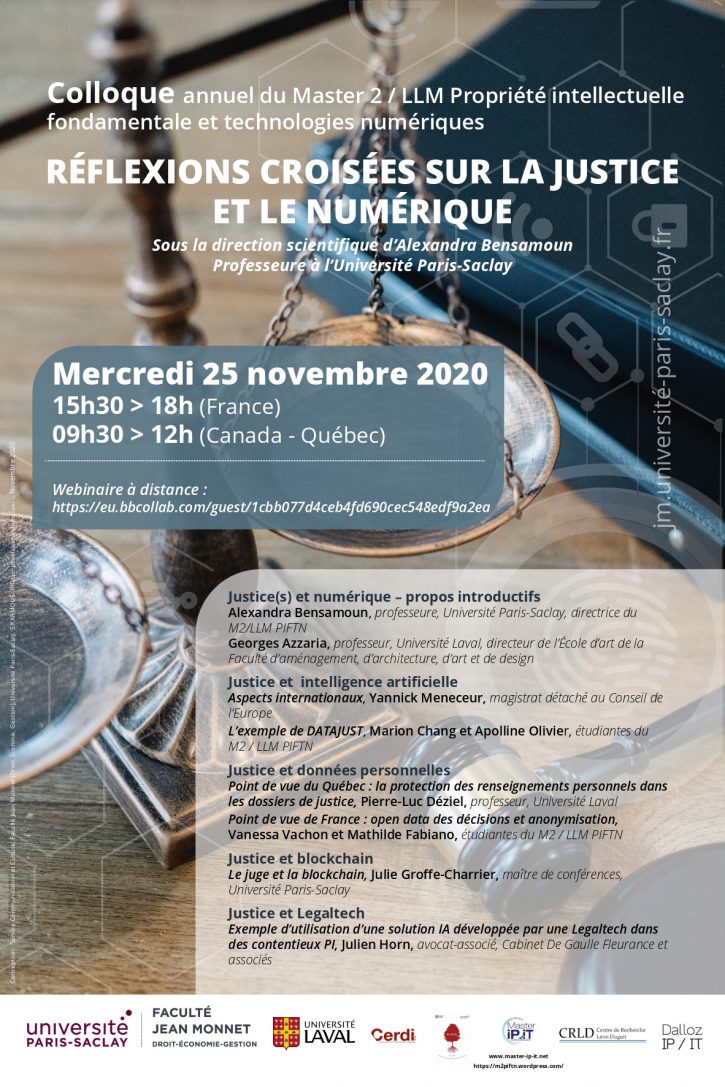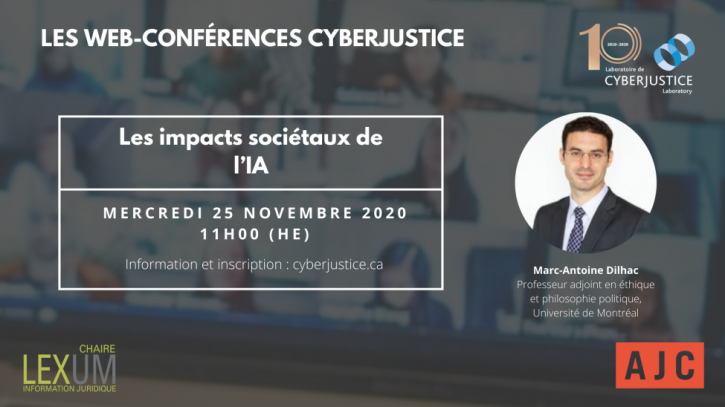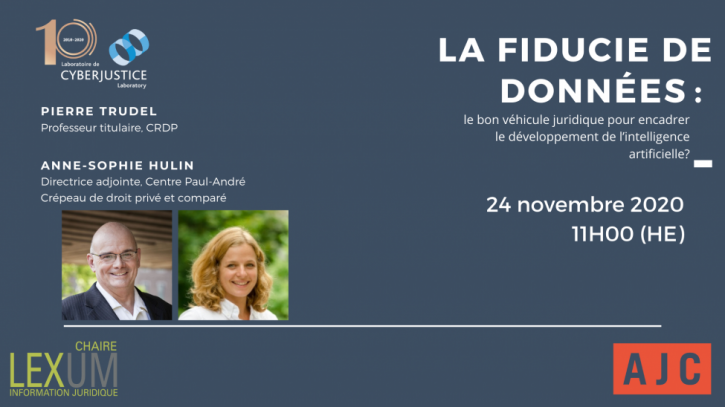News
This content is not available in the selected language.
Opportunities
Offre d’emploi | Le Laboratoire de cyberjustice recrute 2 auxiliaires de recherche (temps partiel) – Hiver 2021
19 November 2020 Karim Benyekhlef
This content is not available in the selected language. Le Laboratoire de cyberjustice est un espace unique de réflexion et de création où les processus de justice sont modélisés et réimaginés afin d’améliorer l’accès à la justice. Nos travaux se distinguent par l’expérimentation d’innovations technologiques, comme l’intelligence artificielle, pour optimiser le fonctionnement actuel de la […] Read more
In the media
Revue Lex Electronica | Dossier spécial : droit algorithmique
18 November 2020 Karim Benyekhlef / Vincent Gautrais
This content is not available in the selected language. Avant propos (extrait) Le Laboratoire de cyberjustice a débuté en 2017 le projet droit algorithmique et la migration des normes juridiques dans les dispositifs techniques : concept, études de cas et perspectives, sous la direction des professeurs Karim Benyekhlef de l’Université de Montréal et de Benoît Frydman […] Read more
Opportunities
Appel à contribution pour un ouvrage collectif sur « Justice sociale et IA »
This content is not available in the selected language. Cet ouvrage collectif s’inscrit dans le cadre des travaux de la Chaire Abeona-ENS-OBVIA et aura pour objectif de proposer une réflexion renouvelée et multidisciplinaire sur les enjeux des usages de l’intelligence artificielle à partir d’une perspective de justice sociale. L’ouvrage rassemblera une vingtaine de textes produits […] Read more
In the media
AI’s Promise and Peril for the U.S. Government
The Human-Centered Artificial Intelligence (HAI) project at Standford University recently released a paper on the potentials and risks associated with the use of artificial intelligence in the US government. Transposable in part to the government contexts of other states, the latter examines the potential benefits of the automation of certain activities and the associated risks, […] Read more
Events to follow
AI on a Social Mission
6 November 2020 Yoshua Bengio
Since its launch in 2017, AI on a Social Mission Conference has reached thousands participants with multidisciplinary expertise combining artificial intelligence (AI), arts and social sciences. The 2020 Special Program focuses this year on critical elements of an inclusive economic recovery. Information and registration here. Read more
Events to follow
Réflexions croisées sur la justice et le numérique
This content is not available in the selected language. Read more
Events to follow
Panel Discussion : Legal Issues on Facial Recognition from an International Perspective
Following the report written by Professor Céline Castets-Renard on the legal framework of facial recognition used by police forces (September 2020), OBVIA is organizing an international panel bringing together European and American researchers to launch debates on the use of this technology. Information and registration here. Read more
Events to follow
The AI and Law Series | New Rules for Robots?
sPEAKER : Simon Chesterman, National University of Singapore Faculty of Law Recent years have seen a proliferation of guides, frameworks, and principles focused on AI. Yet, for all the time and effort that has gone into convening workshops and retreats to draft the various documents, curiously little has been applied to what they mean in […] Read more
Events to follow
Web-conférence | Les impacts sociétaux de l’IA
This content is not available in the selected language. Conférencier : Marc-Antoine Dilhac, Université de Montréal Description à venir Inscription Vous devrez vous créer un compte en cliquant sur le bouton « Créer mon profil », situé en haut de la page dédiée à la Faculté de droit. Inscrivez par la suite les informations requises Note: seules les […] Read more
Events to follow
Web-discussion | La fiducie de données : le bon véhicule juridique pour encadrer le développement de l’intelligence artificielle?
This content is not available in the selected language. Conférencier•e•s : Pierre Trudel, Centre de recherche en droit public Anne-Sophie Hulin, Centre Paul-André Crépeau de droit privé et comparé Appliquer le modèle fiduciaire à la gouvernance des données est une idée de plus en plus discutée. Les tenants de cette approche y voient une manière de favoriser le partage […] Read more
